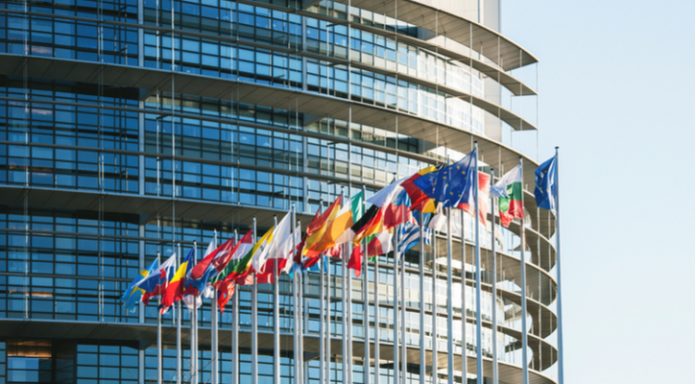Once again, the pound gained versus the euro on Friday, closing at €1.1347, its third straight winning session versus the euro. This put the pound 0.8% higher versus the euro across the week, its second straight winning week.
| What do these figures mean? |
|---|
|
When measuring the value of a pair of currencies, one set equals 1 unit and the other shows the current equivalent. As the market moves, the amount will vary from minute to minute. For example, it could be written: 1 GBP = 1.13990 EUR Here, £1 is equivalent to approximately €1.14. This specifically measures the pound’s worth against the euro. If the euro amount increases in this pairing, it’s positive for the pound. Or, if you were looking at it the other way around: 1 EUR = 0.87271 GBP In this example, €1 is equivalent to approximately £0.87. This measures the euro’s worth versus the British pound. If the sterling number gets larger, it’s good news for the euro. |
After last week was rather light on data for pound traders to digest, this week is set to be much busier. This week’s UK economic data releases include inflation figures and wage data all prior to the Bank of England monetary policy committee meeting and interest rate decision. Furthermore, this week sees the G20 finance ministers meeting in Buenos Aires beginning on Monday, followed by the EU Summit on Thursday. The main topic of discussion at the EU Summit is expected to be the Brexit transition and trade deal.
Brexit negotiators have been trying desperately to try to reach a transition agreement prior to the beginning of the Summit. However, the Irish border is still proving to be a huge problem, where there has been little progress.
A key commons committee has expressed concerns over whether Britain and EU will be able to negotiate a deal in the 7 months left before the Article 50 negotiations are due to end. Suggestions in the report to request an extension to Article 50 have divided the committee. Should no deal be reached within the given timeframe a hard Brexit would be on the cards. This would be the worst-case scenario for the pound.
| Why is a “soft” Brexit better for sterling than a “hard” Brexit? |
|---|
| A soft Brexit implies anything less than UK’s complete withdrawal from the EU. For example, it could mean the UK retains some form of membership to the European Union single market in exchange for some free movement of people, i.e. immigration. This is considered more positive than a “hard” Brexit, which is a full severance from the EU. The reason “soft” is considered more pound-friendly is because the economic impact would be lower. If there is less negative impact on the economy, foreign investors will continue to invest in the UK. As investment requires local currency, this increased demand for the pound then boosts its value. |
Eurozone Inflation Moves Further From ECB Target
The euro was out of favour at then end of last week after inflation data showed that prices were declining in the bloc. Inflation fell from 1.3% in January to 1.2% in February. The same month a year earlier saw inflation at 2%, the European Central Bank’s target rate. This means that inflation is moving away from the central bank’s target.
ECB President Draghi has clearly stated on numerous occasions that the ECB will not be looking to tighten monetary policy in the eurozone until price pressure increase to the 2% target level. Following the release investors pushed back the odds of an interest rate rise from the ECB which sent the euro lower.
| Why do raised interest rates boost a currency’s value? |
|---|
| Interest rates are key to understanding exchange rate movements. Those who have large sums of money to invest want the highest return on their investments. Higher interest rate environments tend to offer higher yields. So, if the interest rate or at least the interest rate expectation of a country is relatively higher compared to another, then it attracts more foreign capital investment. Large corporations and investors need local currency to invest. More local currency used then boosts the demand of that currency, pushing the value higher. |
Eurozone trade balance data is due for release today, however this is not a high impacting data release. Investors will look towards economic sentiment figures released on Tuesday, which could cause some volatility.
|
This article was initially published on TransferWise.com from the same author. The content at Currency Live is the sole opinion of the authors and in no way reflects the views of TransferWise Inc. |





